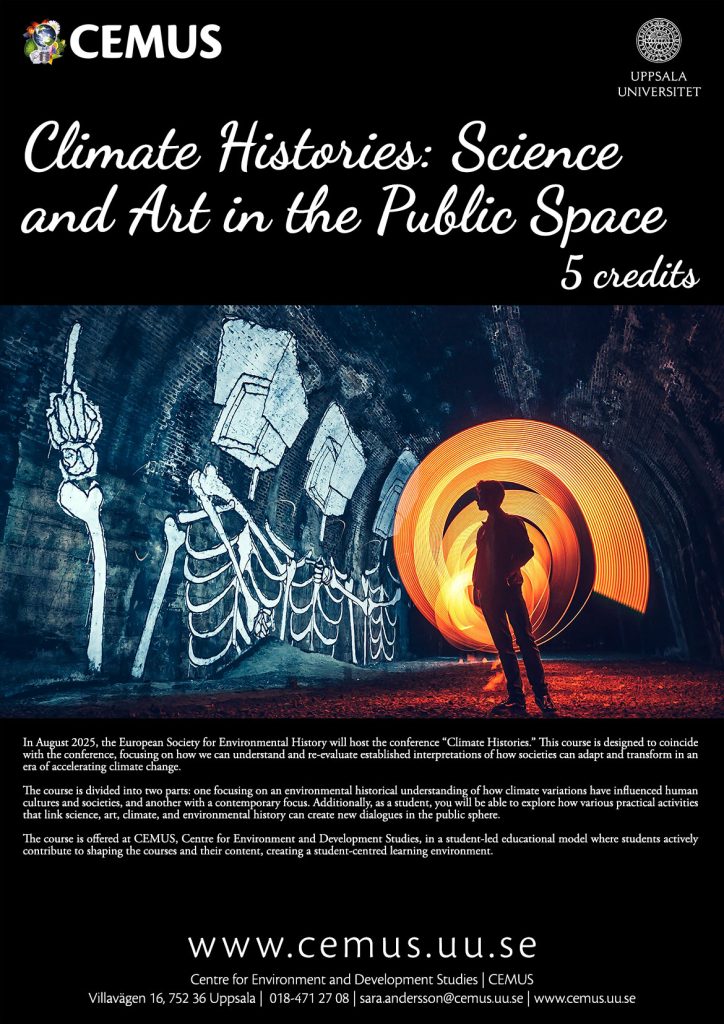Great news for all of you wanting to take a course at CEMUS this summer! The course “Climate Histories: Science and Art in the Public Space” worth 5 credits and runs between August 7-31, read more and click to apply below. If you have any course specific questions please contact daniel.mossberg@cemus.uu.se
Summer 2025, 100%, Campus, Mixed
Application at antagning.se »
Study period: 7 August 2025 – 31 August 2025
Application Deadline: 17 March 2025
Application code: UU-19510 Application
Language of Instruction: English
Location: Uppsala
Selection: Final school grades (40%) – Swedish Scholastic Aptitude Test (10%) – Higher education credits, maximum 165 credits (50%)
Entry Requirements: 60 credits
Fees: If you are not a citizen of a European Union (EU) or European Economic Area (EEA) country, or Switzerland, you are required to pay application and tuition fees. Read more about fees.
Application Fee: SEK 900
Tuition fee, first semester: SEK 10 833
Tuition fee, total: SEK 10 833
About the course
In August 2025, the European Society for Environmental History will host the conference “Climate Histories.” This course is designed to coincide with the conference, focusing on how we can understand and re-evaluate established interpretations of how societies can adapt and transform in an era of accelerating climate change.
The course is divided into two parts: one focusing on an environmental historical understanding of how climate variations have influenced human cultures and societies, and another with a contemporary focus. Additionally, as a student, you will be able to explore how various practical activities that link science, art, climate, and environmental history can create new dialogues in the public sphere.
About the Climate Histories conference
Environmental history is a powerful form of storytelling.
Under the ‘Climate Histories’ theme we ask, how might we rethink the written and material records of social adaptabilities and transformations to understand better what it means to live through an era of rapid climate change?
Though the climate crises of today are unprecedented, all societies have negotiated the passing of the seasons and of long and short spells of floods, droughts and unusual cold periods. As catastrophic events attest to the undeniable effects of climate change, we are reminded of the historical depth of living with climate variability. The cry of the hunger stones that were exposed due to the central European droughts – If you see me weep – serves as a signal to consider the bad years which have been and will return.
This conference then will act as a record in itself, a 2025 ‘hunger stone’ capable of documenting and reflecting on how climate change is experienced today and in the past.
Read more about the conference here: https://eseh2025.com/
CEMUS
The course is offered at CEMUS, the Centre for Environment and Development Studies, in a student-led educational model where students actively contribute to shaping the courses and their content, creating a student-centred learning environment.
Syllabus
Link to syllabus.

